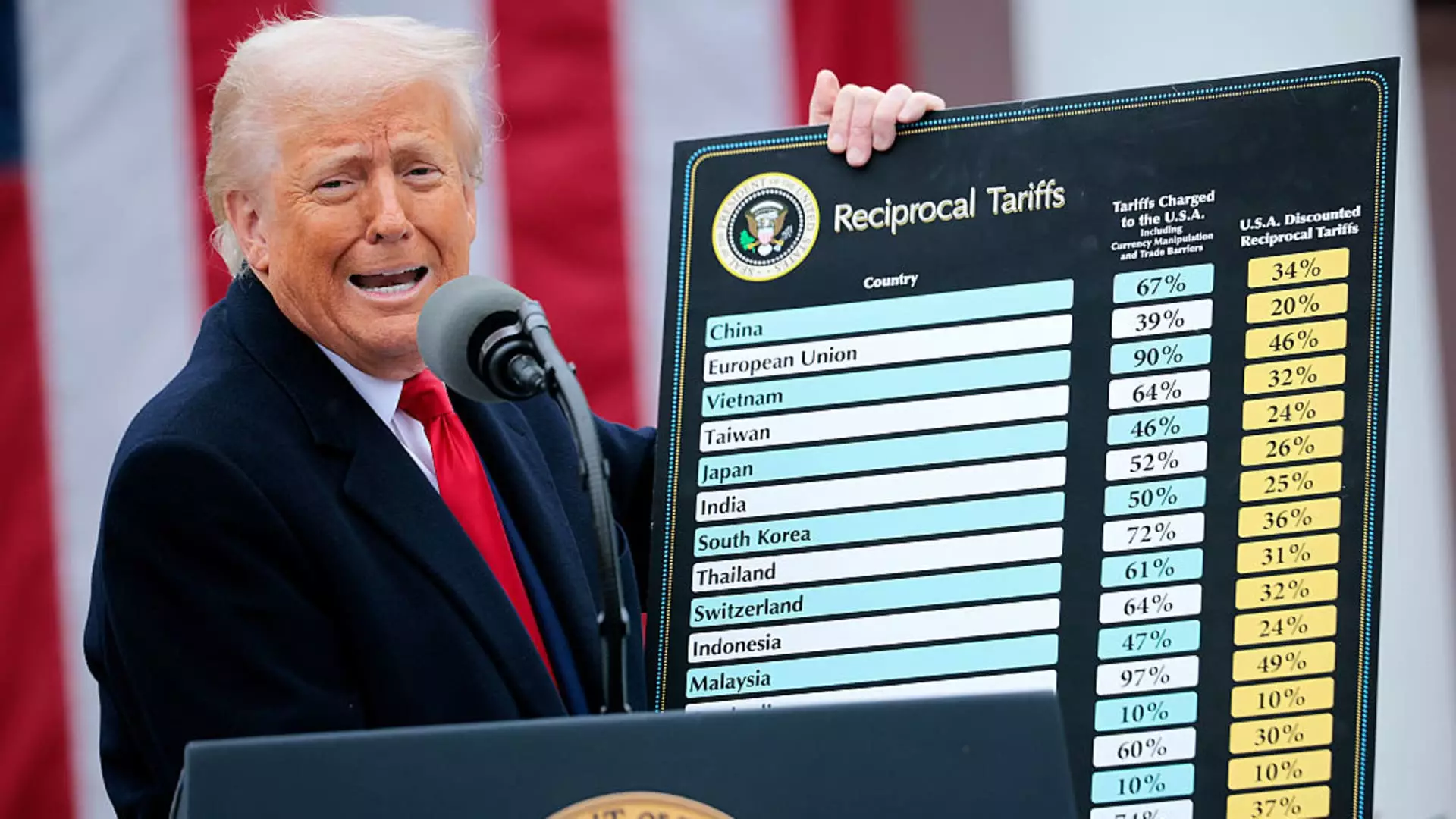In a landmark decision that ripples through the foundations of American economic policy, a federal court has emphatically placed a check on President Donald Trump’s embattled tariff strategy. This ruling, which asserts that the president has overstepped his bound by invoking the International Emergency Economic Powers Act (IEEPA) of 1977, illustrates an alarming trend of executive overreach. The judges’ findings are not merely an isolated legal judgment but resonate with a consequential message about the nature of governance and the systemic checks that are designed to constrain it.
The Flawed Justification of Authority
Trump’s reliance on the IEEPA to justify sweeping tariffs misses the mark entirely. Extensive tariffs intended to retaliate against perceived economic aggressions were branded as a solution to threats that, as noted by the court, weren’t applicable in this context. This raises pressing questions: Can we trust a leader who operates outside the stipulations of established law? Or more fundamentally, can a democracy endure when its executive branch acts unilaterally to manipulate trade for fluctuating political gains? The seriousness of this judgment cannot be overstated—the court’s unanimous view effectively nullifies the president’s recent tariff orders and reminds us that economic stability should not be bartered for political bravado.
Businesses at the Brink: Who Really Suffers?
The lawsuit, brought by five U.S. businesses reliant on imports, highlights the real-world impacts of Trump’s tariff highs and lows. These companies did not just challenge the legality of the tariffs—they stood as representatives of countless others that are grappling with the economic consequences of aggressive trade policies. It’s not merely about legality, but morality; what is the price of patriotism when U.S. businesses are being thrust into chaos over decisions made in the White House? Tariffs, far from being a mere economic tool, are weapons that disrupt livelihoods, prompting discussions that should extend well beyond the courtroom.
Political Ramifications and Appeals
While White House lawyers have the option to appeal this decision, the mere act of contesting the ruling underscores a deeper dilemma—Trump’s economic agenda is now publicly scrutinized, and the façade of invincibility has cracked. The tariff framework, originally a cornerstone of his presidency, lies under siege, indicating a potentially precarious future where such authoritative decisions could be met with vigorous resistance from both judiciary and public. The once-solid belief that the president could manipulate trade laws as required is being dismantled, piece by piece.
Reshaping Economic Policy: A Call for Rational Leadership
The implications of this ruling resonate far beyond tariffs and trade wars; they usher in an era demanding a more rational approach to economic policy. As we watch the fallout from this judicial decision, there’s an urgent need for our leaders—especially in the heart of the liberal spectrum—to foster an environment of collaboration and careful consideration in crafting trade policy. The focus should not be on retaliatory measures, but on fostering partnerships and sustainable economic growth, learning from this judicial intervention to strengthen the framework of our democracy.
In essence, this ruling serves as a bellwether for future governance, emphasizing the vital importance of checks and balances in America’s political structure. It’s a stark reminder that while tariffs may offer a veneer of immediate economic protection, they can unravel deeper systems of trade and trust upon which our economy is built.

